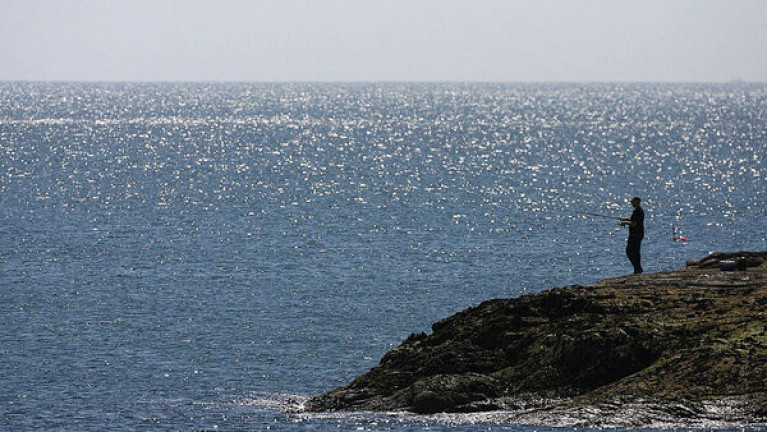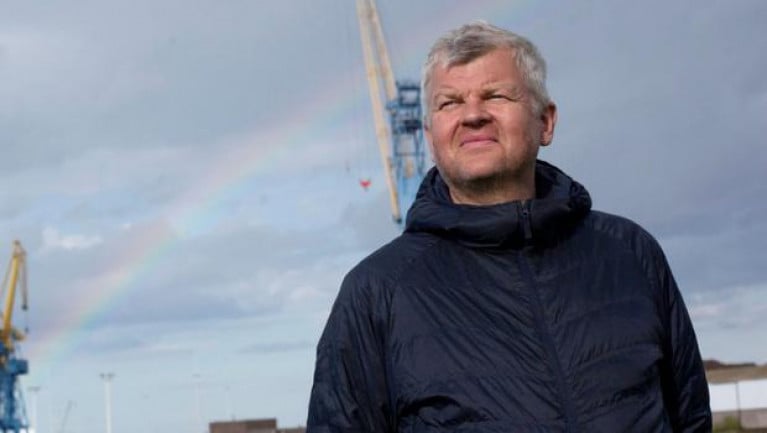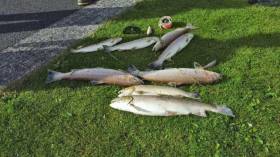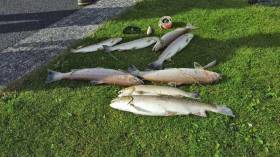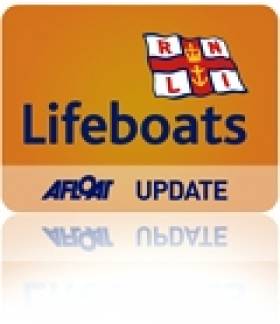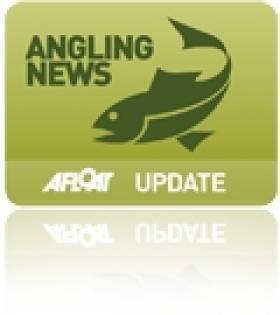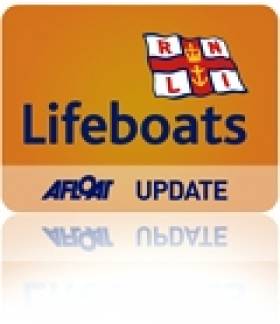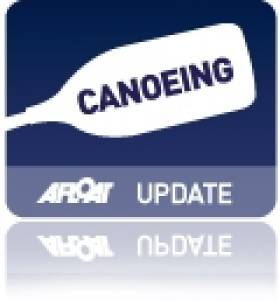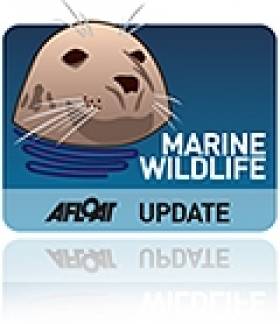Displaying items by tag: Co Down
Harbour in Co. Down is Where Public Asked to Avoid While Munitions Recovered
A harbour in Co. Down is where an operation is under way to remove munitions believed to date back to the Second World War.
The public, reports Irish Examiner, were advised to avoid the area of Ardglass Harbour on Saturday while the efforts were ongoing.
South Down MP Chris Hazzard said the munitions were caught in the nets of a fishing vessel.
“Ardglass harbour evacuated as local trawler returns with a special catch in its nets – yet more British Army munitions – completely unacceptable that these munitions are regularly putting our coastal communities in danger in Co Down,” he tweeted.
TV presenter Adrian Chiles will be seen helping to steer a boat into Belfast Harbour and getting behind the controls of a crane in the docks on network television.
The BBC Two programme has an entire episode (3) from 'Our Coast' dedicated to exploring Co Down's shores from Belfast Lough down to Strangford Lough via the Ards Peninsula.
Adrian's journey starts with highlighting the work of Belfast Harbour's pilots - a team of five captains with 150 years of seafaring experience between them - who dock huge vessels safely on a daily basis.
Our Coast: Co Down is to broadcast first on BBC Two (England) tonight (8.30pm), and tomorrow on BBC Two NI (at 11am)
More here from the Belfast Telegraph.
Cracked Pipe Led To Fish Kill On Co Down River
#FishKill - The fish kill on the Annsborough River in Co Down last weekend was caused by a chemical leak from a cracked pipe, accoridng to BBC News.
And NI Water has offered to restock the salmon and sea trout stream, one popular with local angling enthusiasts, days after the incident at its water treatment plant in the area.
As previously reported on Afloat.ie, some 1,600 fish were killed when the river was polluted by what’s since been confirmed as a polyelectrolyte used in processing water treatment byproducts.
"The severity of this incident is very unusual for our company. We truly regret the outcome and the number of fish that have been killed,” said NI Water in a statement.
BBC News has more on the story HERE.
Major Fish Kill On Co Down River After Chemical Spill
#FishKill - Accidental discharge from a water treatment works is to blame for a major fish kill incident on a Co Down river at the weekend, as the Belfast Telegraph reports.
Angling enthusiasts have expressed dismay over the deaths of more than 1,600 fish on a tributary of the Annsborough River that flows into Dundrum Bay near Newcastle, after making the grim discovery on Saturday 8 October.
The Northern Ireland Environment Agency is currently investigating the incident, which NI Water has admitted was caused by an accidental discharge of chemicals into a river known locally for salmon and sea trout.
The Belfast Telegraph has more on the story HERE.
Earlier today Afloat.ie reported on concerns among Northern Irish anglers over spikes in pollution and poaching on the country’s waterways.
NI Coastguard Rescues Dog From Sea Cliff Ledge
#AnimalRescue - Northern Ireland coastguard teams raced to the aid of a dog trapped on a cliff ledge in Co Down earlier this week.
As the Belfast Telegraph reports, eight coastguard volunteers fought their way across boggy ground to reach the terrier that had slipped down the cliff from the Ballyhornan Coastal Path.
But once on the scene, a winch was quickly set up to rescue the petrified pooch and return him to his owners.
A rescue of a different kind was celebrated in Co Wexford in recent days after a loggerhead turtle washed up in Kilmore Quay over the Christmas period.
According to the Wexford People, the turtle – of a species used to much warmer waters – was named Ninja by staff at the Seal Rescue Ireland sanctuary who nursed her back to health after she beached alive just before Christmas.
A second turtle found over the same period at Ballyhealy Beach sadly died.
"Ninja was our first turtle in the centre and we were extremely happy with her progress," said manager Meadow Greenwood. "Our fingers are still crossed for a full recovery and final ending of release."
Ninja has since been transferred to the longer-term marine wildlife care facilities at Galway Atlantaquaria.
Busy Days For RNLI Lifeboats In Co Down
#RNLI - Newcastle RNLI’s always-on-call lifeboat crew had to abandon their buckets and sponges during a fundraising car wash at the weekend to respond to an emergency at the Co Down town’s harbour.
The RNLI volunteers were busily soaping and rinsing cars for their annual Easter fundraiser on Saturday when they were alerted to a woman in trouble in the freezing water a few yards from one of the piers.
The car wash was immediately abandoned and within minutes the inshore lifeboat Aldergrove II was launched and rushed to the woman’s aid.
At the same time, crew member Shane Rice grabbed a lifebelt from the pier and jumped into the water to assist the woman. He kept her afloat while the Aldergrove II came alongside.
The woman was helped into the rescue inflatable, wrapped in blankets to prevent hypothermia, and taken back to shore where an ambulance was waiting to take her to hospital.
Newcastle RNLI’s deputy launching authority Clifford Moorehead said afterwards: "The lifeboat crew are always ready to respond in an instant to any emergency. It is fortunate that the car wash was in progress at the time and the crew members were on hand to swiftly deal with this case.
"After the rescue the crew members came back to the harbour and resumed their car wash. It’s just all in a day’s work for the RNLI."
It wasn't the only callout of the weekend for the RNLI in Co Down, as Bangor RNLI assisted a lone sailor who got into difficulty on a sailing dinghy Easter Sunday.
At 1.10pm the volunteer lifeboat crew received an urgent request from Belfast Coastguard to launch the lifeboat and rescue one person from a 17ft dinghy.
The sailing dinghy had reportedly gone aground on ‘Cockle Island’ off Groomsport Harbour on the southern shores of Belfast Lough.
Upon arrival at the scene, the volunteer crew found that the occupant onboard the dinghy had been assisted by another boat owner and the vessel had been safely tied to a mooring buoy.
Meanwhile, last Wednesday evening Portaferry RNLI was launched to reports that red flares has been sighted on Strangford Lough off Kircubbin in Co Down.
They were joined by a coastguard team that searched the shoreline and after some time recovered a spent flare casing. The inshore lifeboat and its volunteer crew were stood down after a number of hours with the callout proving to be a false alarm.
Portaferry RNLI lifeboat operations manager Brian Bailie said: "A member of the public acted in good faith ... alerting the emergency services to what they understood to be a distress flare on the lough."
He reiterated that flares "should only be used in emergency situations".
Rods Stolen from NI Angling Charity
#Angling - Sixty fishing rods were among items taken in a break-in at an angling charity's storage facility in Co Down, as BBC News reports.
Angling First - which says it has taught fishing skills to 2,000 children from disadvantaged areas across Northern Ireland - discovered the theft on Wednesday morning.
The shipping container outside Dromore where the charity keeps its equipment was found forced open, and items worth more than £600 (€745) were stolen.
In a statement, the PSNI said that the burglary occurred some time between Sunday 2 and Wednesday 5 December.
The charity's Mark McGivern told BBC News: "It makes you feel sick, it's probably been someone who has come to our pond, but they won't deter me from continuing."
Donaghdee RNLI Comes To Aid of Drifting Fishing Boat
#RNLI - Donaghadee RNLI has assisted two people whose boat got into difficulty off Co Down.
The station’s volunteer lifeboat crew was out on a training exercise on Sunday morning when they were requested to go to the aid of a 30-ft fishing vessel off the Copeland Islands.
Two people were on board the vessel which was drifting off South Briggs. Within minutes the lifeboat was on the scene and found the vessel had a rope around its propeller.
The lifeboat crew was able to establish a tow rope across to the vessel and towed it safely into Groomsport Harbour.
Donegal Man Runs, Cycles, Swims and Kayaks Across Ireland for Charity
#KAYAKING - A fitness instructor from Donegal recently raised funds for a Parkinson's charity by crossing the north of Ireland from east to west with an extraordinary combination of running, cycling, swimming and kayaking.
As the Donegal Democrat reports, James McIntyre spent a weekend traversing the island of Ireland from Newcastle in Co down to Creevy in Co Donegal.
His route that included a mountain run across Sliabh Donard and the Mournes and a cycling portion from Annalong to Enniskillen, before he took to the water for a 35km kayak run along the length of Lower Lough Erne to Beleek and a swim across Assaroe Lake.
McIntyre covered 201km altogether in his epic challenge to raise funds for research into Parkinson's disease, an illness that affected both his and his partner's grandfathers.
The 37-year-old surf lifesaver is no stranger to such efforts, after completing an open sea swim of Donegal Bay last year, also for charity.
The Donegal Democrat has much more on the story HERE.
'Rogue' Anglers May Shoot Seals Threatening NI Fish Stocks
#MARINE WILDLIFE - Northern Ireland's Green Party has warned that "rogue" anglers may shoot seals that are consuming their fish stocks unless they are relocated, the Belfast Telegraph reports.
The protected seals have been getting into the River Quoile in Co Down, allegedly by way of a damaged fish pass, and decimating the area's fish stocks - much to the consternation of local anglers.
Earlier this week Leisure Minister Carál Ní Chuilín confirmed in a response to a question from Green Party MLA Steven Agnew that department officials have requested the Rivers Agency to carry out repairs on the fish pass.
But she also said that no action can be taken to remove seals from the river "without the approval of the Northern Ireland Environment Agency", adding that her department "does not have the specialist knowledge and equipment to remove the seals".
A Green Party spokesperson described the repair work as "absolutely vital because even if the seals are safely removed from the Quoile they will only make their way back in if the fish pass is not repaired.
"And a rather worrying consideration is that a very small rogue element would be prepared to shoot the seals if a solution is not forthcoming.”
Seal shootings have been much in the news as of late, with gardaí in Waterford investigating attacks on four animals in Tramore.


























